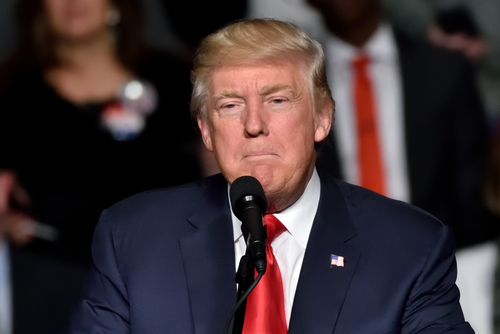
Ex-President Trump faces historic criminal sentencing Friday
Listen To Story Above
A pivotal moment in American legal history unfolds this Friday as Donald Trump, both former president and president-elect, faces sentencing in a New York courtroom. The gravity of the situation is unprecedented, with Trump’s conviction on 34 felony counts for falsifying business records marking a significant juncture where criminal justice intersects with constitutional principles and political implications.
This landmark case centers on allegations that Trump manipulated financial documentation to conceal unauthorized payments, sparking widespread discussions among diverse expert communities. Legal professionals, constitutional authorities, and political analysts are closely examining the implications of potential sentences, which could range from probation to incarceration.
🚨Trump Lawyer Mike Davis BLASTS Amy Coney Barrett Over Denial of Trump’s Sentencing Halt:
"She's a rattled law professor with her head up her ass. She can stop knitting at night and follow the law. How can you be immune from prosecution but not sentencing. Stop being a coward." pic.twitter.com/tglE4IPfoz
— Benny Johnson (@bennyjohnson) January 10, 2025
The case presents unprecedented challenges, forcing the judicial system to navigate complex questions about how executive authority interacts with criminal accountability. The possibility of a president-elect receiving a prison sentence raises fundamental concerns about governmental operations and the practical execution of presidential duties.
Amy Coney Barrett just sided with the Liberal minority in declining to halt Trump’s sentencing in New York.
Unforgivable. pic.twitter.com/h3WRbhT2rb
— johnny maga (@_johnnymaga) January 10, 2025
The outcome of Friday’s sentencing will likely establish significant precedents regarding the balance between presidential privileges and judicial oversight, while testing the resilience of America’s democratic institutions. This case is forcing the nation to contemplate how it handles the prosecution of its highest-ranking political figures while maintaining the integrity of its justice system.
These proceedings have highlighted the complex relationship between political leadership and legal accountability, demonstrating how the American justice system adapts when confronted with extraordinary circumstances involving those at the pinnacle of political power.




